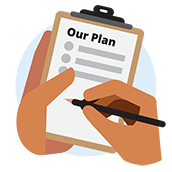Making a plan to be ready for an emergency
What you will find on here
What is an emergency?

The information on this Easy Read webpage is about making a plan so you know what to do in an emergency.

An emergency is when something dangerous happens that can put people at risk.
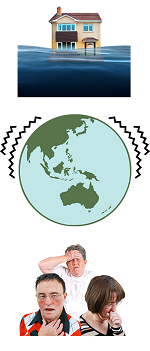
An emergency can be things like:
- a flood
- an earthquake
- a pandemic which is when a lot of people get very sick very quickly.

It is not possible to know:
- when an emergency might happen
- where an emergency might happen.

When an emergency happens everyone needs to act quickly so they can stay safe.

Knowing what to do in an emergency will make it much easier for you to get through it.
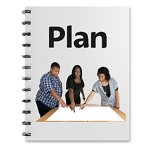
This webpage will guide you through making a plan for what you will do if an emergency happens.
Making a plan for your household

When an emergency happens it is best to stay in your own home:
- if you can
- if it is safe to do so.
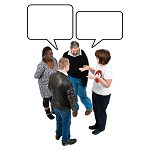
You should talk with the people you live with / your whānau about what you will do in an emergency.

You should think about:
- the things you need / use every day
- what you would do if you did not have those things.

Make sure everyone in the house knows the emergency plan.

Your plan needs to think about everyone in your household.

There is an Easy Read document called:
Getting ready for an emergency: My household plan (.pdf 2.7mb)
You can use this document to write your plan.

If you have a baby
Babies are more at risk than adults in an emergency.

In an emergency you might not be able to get to the shops to buy the things you need.
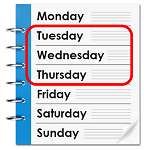
You should make sure you have enough supplies at home for your baby for at least 3 days.

Things you might need for a baby are:
- a store of baby food
- nappies that you can throw away called disposable nappies
- baby wipes
- hand sanitiser
- rubbish bags for dirty nappies
- any medicines / creams your baby needs
- thin plastic gloves that you can throw away called disposable gloves
- spare clothes / blankets
- a special toy.
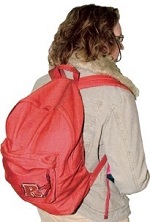
Make sure you also have supplies for your baby in a grab bag in case you need to leave home in a hurry.

A grab bag is a small backpack of essential items.
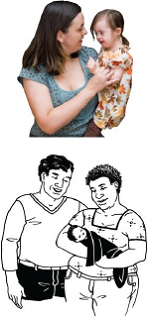
Make sure you keep some supplies with other people your baby often stays with like:
- family / whānau
- carers.
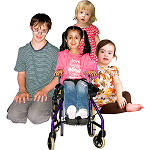
If you have young children
You should make sure you talk to young children in a way that makes them feel ready for if an emergency happens.

You should tell them:
- what might happen in an emergency
- things you can do to keep safe
- what your plan is if you cannot get home.
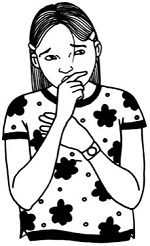
Having a plan for an emergency will make it less frightening for young children if it happens.
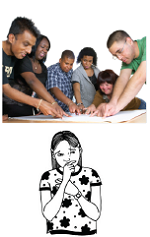
Young children:
- can help with planning for an emergency
- are less likely to be frightened if they know what to do.

You can give them tasks to do like:
- check the date on your stored water
- test the torch is working.

Make sure you have supplies for young children in a grab bag like:
- warm clothes
- water / snacks
- a favourite toy.

If you have a disability or a health condition
If you have a disability or health condition it is important to think about what you might need in an emergency.

You can find an Easy Read webpage called:
Advice for disabled people and people with health conditions

If you have pets / other animals
Your emergency plan should include all pets / other animals you own.

You should bring all pets inside with you where it is safer.

You should move any livestock like cows / sheep to a safe place undercover.

Make sure that all animals have access to:
- food
- clean drinking water.

Make sure you have enough food and water for your pets or another animal to last at least 3 days.

You should make sure you microchip your pets.

A microchip is a tiny device put under the skin of an animal that has details about who owns them.
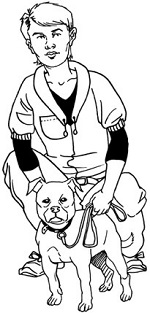
Make sure you keep any details up to date with the New Zealand Companion Animal Register.

You can do this at the New Zealand Companion Animal Register website at:

If you have pet insurance you should check to see if it covers emergencies.

Having insurance is when you pay money to an insurance company so that they will assist you if something goes wrong.

You should take your pets with you if you have to leave your home.

It is useful to keep a list of:
- kennels that will look after dogs
- catteries that will look after cats
- motels that will allow you to bring pets.
Making a plan for your place of work

If an emergency happens while you are at work you might not be able to get home.
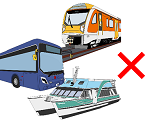
Public transport might stop running like:
- buses
- trains.
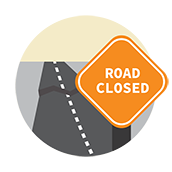
Roads might be blocked / closed so you cannot use them.

Sometimes areas might be blocked / closed so you cannot get to them at all.

You should make a plan so you know:
- who can support you if an emergency happens at work
- how to get home safely.
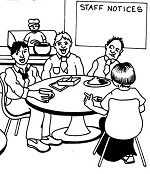
Ask your workmates:
- if they live near you
- if you can travel home with them.
Making a plan for family members who go to school
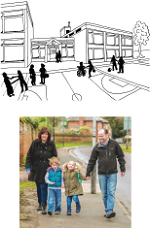
If you have children in school / an early childhood centre you should:
- find out what the emergency plan is of that place
- think about who will collect your children if you cannot get to them.

You should find out where the safe place is for children to go in an emergency so you know where to pick them up when it is safe to do so.

Roads may be blocked by an emergency.
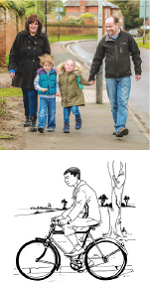
If possible you should plan to pick up your children:
- by walking to them
- by using a bicycle.

Telephones may not be working very well in an emergency so you might not be able to contact the school.

You should give the school / early childhood centre a list of 3 people you trust who can pick your children up for you.
Making a plan for your community
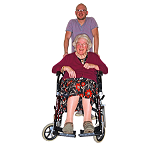
In an emergency:
- you might need support
- other people might need support.
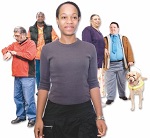
Having a community emergency plan will make it easier for people to help each other in an emergency.

Talk to other people in your local community to find out what they will do in an emergency like:
- your neighbours
- groups in your community.

Groups who already have a community emergency plan could be:
- your local Civil Defence Emergency Management Group
- Neighbourhood Support groups
- groups where people volunteer to help like:
- church groups
- sports groups
- local schools
- local marae
- groups that work for / with the Government to support the public called service organisations.

You can get in touch with these groups to find out what they will do in an emergency.
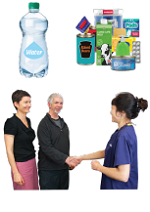
They may also be able to help you if you need any:
- supplies like food / water
- support in an emergency.

You can get in touch with your local Civil Defence Emergency Management Group to find out if there is a community emergency plan for your area.

You can find the Civil Defence Emergency Management Group for your local area at this website:
How to get prepared for an emergency
Find out how you can get prepared for an emergency.

